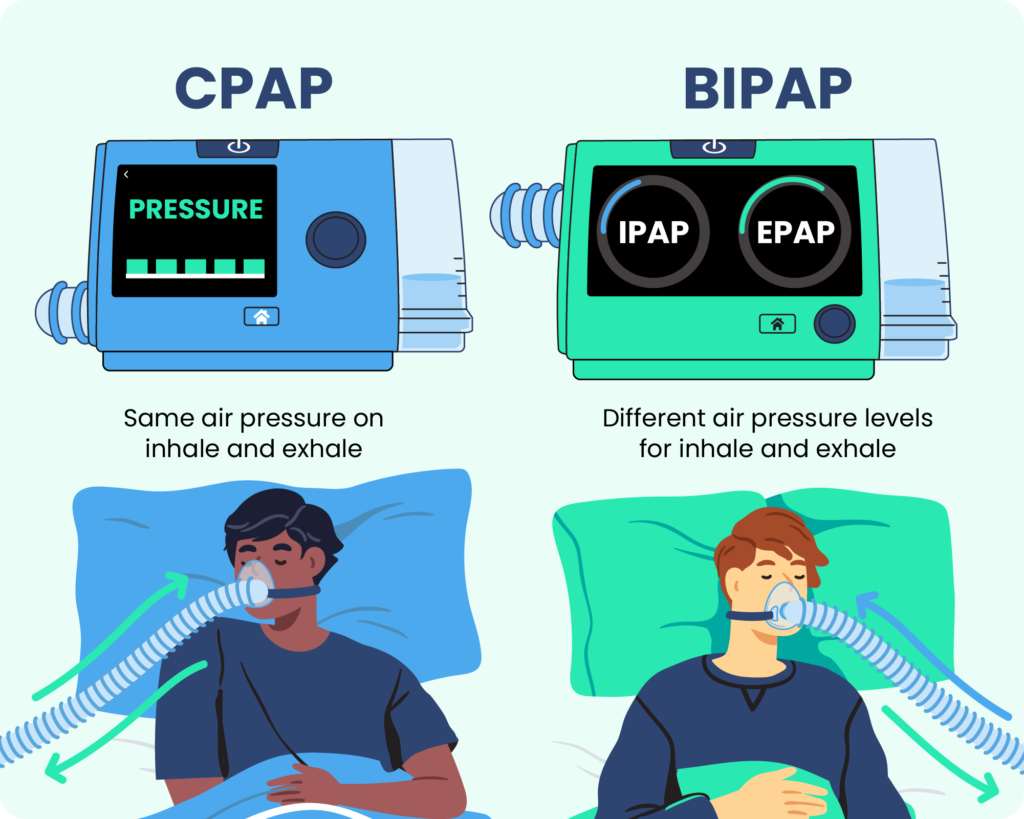CPAP vs. BiPAP – Which is Right for You?
If you, or someone who lives with you, has been diagnosed with sleep apnea, or other respiratory disorder, then CPAP, and possibly also BiPAP, may be on your radar. But what are CPAP and BiPAP, and what's the difference between them, and what's best for your requirements? At The Oxygen Health Care, we believe in teaching our patients how to make informed decisions when it comes to their health. In this blog, we will be explaining CPAP vs. BiPAP, their benefits, and what works best for optimal breathing and sleeping. What is CPAP? Continuous Positive Airway Pressure (CPAP) delivers a constant, steady stream of air into your airways when sleeping. CPAP is the most common treatment for obstructive sleep apnea (OSA) and keeps your airways from becoming obstructed when sleeping. ✅ Best for: Mild and moderately ill sleep apnea patients. ✅ How it works: Delivers a single constant air pressure for the entire night. ✅ Common CPAP devices: AirSense 11, AirStart 10 What is BiPAP? BiP Bilevel Positive Airway Pressure (BiPAP) provides two levels of air pressure—a higher on inhalation and lower on exhalation. It's generally prescribed for more critical respiratory disease, such as COPD (Chronic Obstructive Pulmonary Disease). ✅ Best for: Those with more serious respiratory difficulties. ✅ How it works: Offers different levels of inhalation and exhalation pressures. ✅ Common devices for BiPAP: BiPAP ST, BiPAP Auto CPAP vs. BiPAP: Would I Prefer It? ???? If your sole problem is sleep apnea, CPAP will likely be your best solution. ???? If you have COPD and other lung disease, then BiPAP can be more beneficial. ???? If exhaling against CPAP pressure becomes problematic for you, then BiPAP may be a more comfortable solution. At The Oxygen Health Care, we help choose the best respiratory treatment with expert counseling and quality devices tailored for your needs.
When you own your breath, nobody can steal your peace.
World Health Organization


Comments (0)